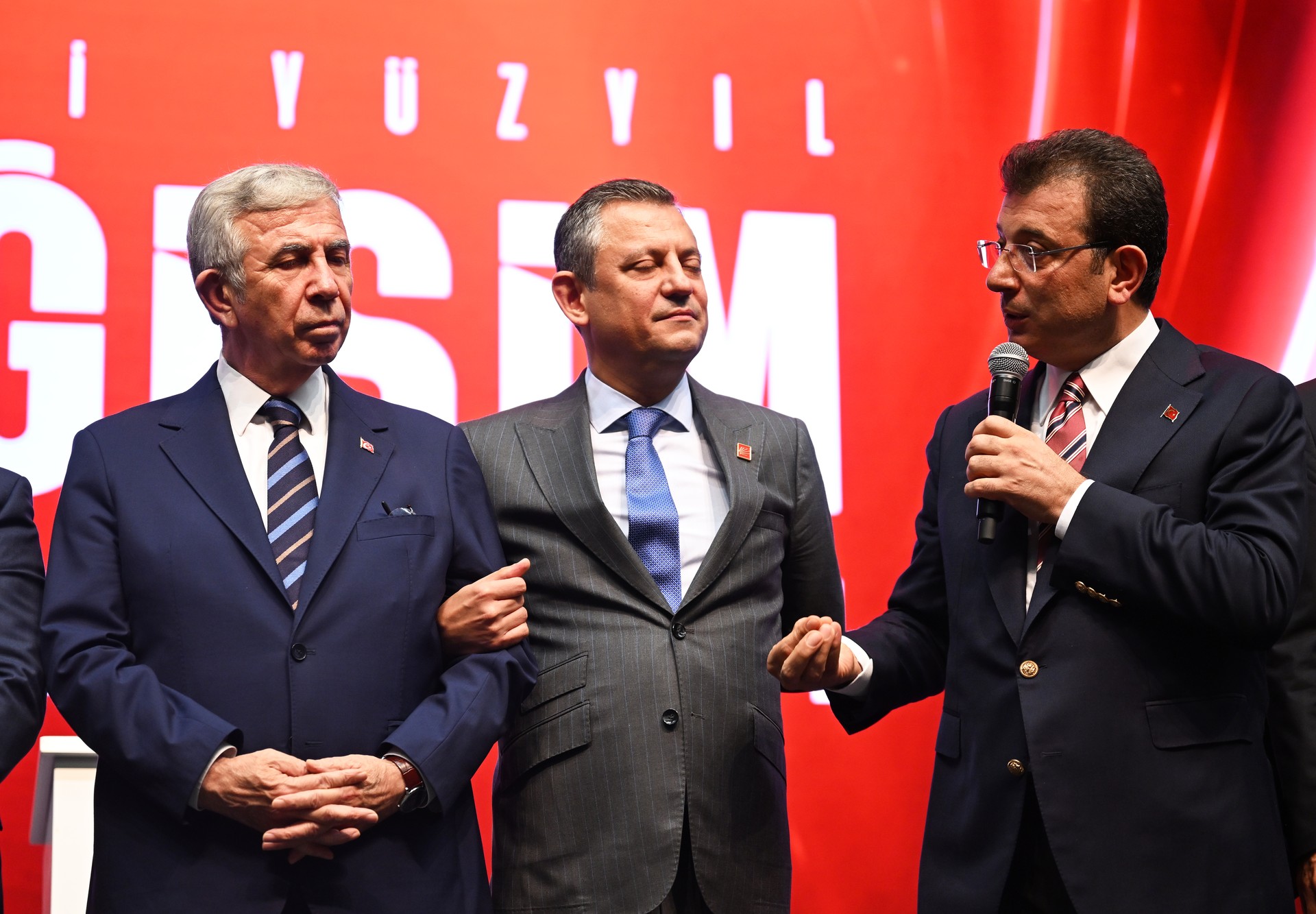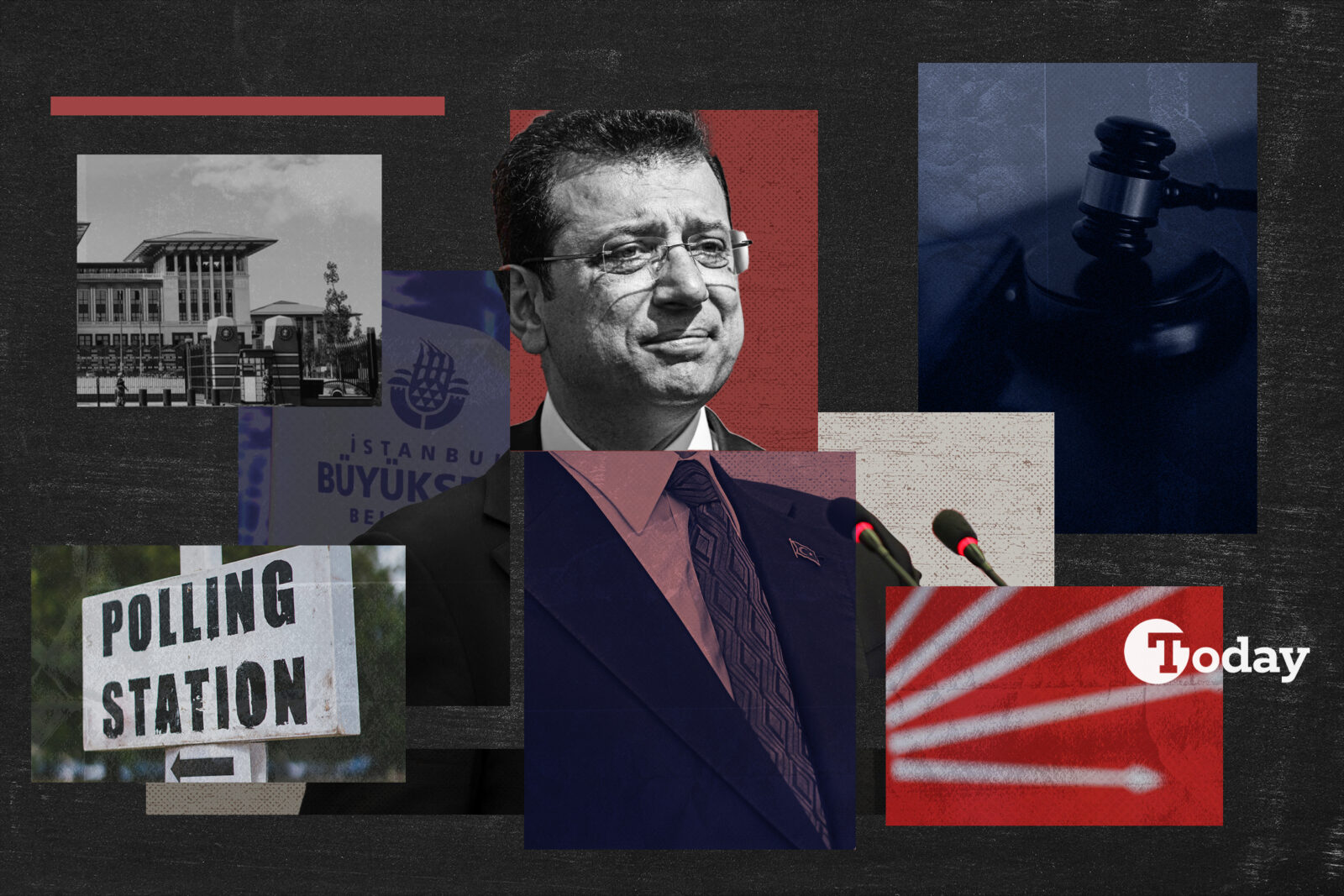
The main opposition Republican People's Party (CHP) has succeeded in concealing the political rivalry between Istanbul Mayor Ekrem Imamoglu and Ankara Mayor Mansur Yavas in recent months. A series of events, some in public, suggest the rivalry will dominate CHP's future along with the next presidential elections. While this growing tension is still rarely discussed in public, it is silently discussed behind closed doors.
The ruling Justice and Development Party (AK Party) seems to be enjoying the CHP's internal fight and is benefitting from it as much as possible. Pro-government columnist Abdulkadir Selvi penned an article on Feb. 4 in which he said, ''CHP has started to think about how to govern Ekrem Imamopglu and Mansur Yavas instead of the country itself. CHP's only agenda is to declare Imamoglu as the presidential candidate. However, Mansur Yavas is resisting. Yavas is against the primary elections to elect the presidential candidate.''
Primary elections to select the next presidential candidate were suggested by CHP leader Ozgur Ozel last week. However, as an outsider, Yavas lacks widespread support in CHP's voter base due to his long past with conservative, right-wing political movements.
Both names are key figures in Türkiye’s main opposition CHP, elected with strong public support in 2019 and widely seen as future presidential candidates and potential leaders of Türkiye. However, beneath the surface, a quiet struggle is taking place; one that could impact not only their own political futures but also the fragile unity of CHP itself.
After the opposition's defeat in the 2023 presidential election, CHP faced a difficult period of change. The party, trying to redefine its leadership and strategy, now finds itself between two of its most important figures, Ekrem Imamoglu and Mansur Yavas. Both have ambitions that extend beyond their current roles as mayors and are carefully working to strengthen their positions.
Despite maintaining a formal display of unity, their differences in political style and goals are hard to ignore. Imamoglu presents himself as a modern, pro-European, liberal leader who frequently engages with the media and the Western ambassadors or even the leaders. On the other hand, Yavas appeals to more conservative and nationalist voters, focusing on practical governance rather than public debates. These differences have led to an unspoken but strong rivalry within the party.

Amid this rivalry, CHP’s current leader, Ozel, is working to maintain control over the party while also preparing for future elections. He recently called for an early election and stated that CHP will soon announce its presidential candidate. His leadership faces a significant challenge, as both Imamoglu and Yavas have considerable influence within the party.
There is widespread expectation that Ekrem Imamoglu, rather than waiting for Ozel's support, may declare his presidential candidacy if the CHP leader is slow to back him. This could cause further divisions within CHP, as the party attempts to balance its internal competition with its broader goal of challenging the ruling AK Party in future elections.
Although both mayors were initially seen as fresh alternatives to long-term government rule, their actual performance as city leaders has received mixed reviews. It is widely expressed and accepted that Imamoglu has launched major infrastructure projects, nearly all of which were originally started, planned and designed by the previous municipal administration besides his digital initiatives in the province. However, these have been accompanied by delays.
Similarly, Yavas’ administration in Ankara has been praised for financial discipline and transparency, yet critics argue he has been too slow in responding to urban issues.
Rather than focusing entirely on managing their cities, both leaders seem increasingly involved in positioning themselves as the face of the opposition. Imamoglu has openly challenged CHP’s traditional leadership, while Yavas has been more reserved but is gradually building his own base of support. This internal power struggle is becoming a real challenge for the party and could weaken its overall position.
The question is not just about who will lead CHP but also about what direction the party will take. Will it embrace Imamoglu’s preference for appearing modern and pro-European, or will it lean toward Yavas’ more traditional, nationalist approach? This division is already causing tension among party members, with different factions aligning themselves with each leader.
Meanwhile, the ongoing judicial investigations involving CHP figures, including Imamoglu, have added another layer of complexity. The party has framed these investigations as politically motivated, while the government defends them as legitimate legal actions by the independent judiciary. These legal troubles could significantly impact Imamoglu’s future political ambitions.
As this quiet rivalry grows, CHP risks becoming too focused on internal conflicts instead of preparing for the next elections. If the party cannot manage this competition effectively, it may lose its chance to offer a strong alternative to the ruling AK Party.
In addition to internal struggles, external factors also play a role. The Turkish media has a significant influence on public perception of CHP, shaping opinions about the party’s leadership and stability. This can make Imamoglu and Yavas appear more focused on personal ambitions than their responsibilities as mayors.
Both leaders face challenges in meeting voter expectations, and even those who originally supported them have voiced concerns about delays in projects and ineffective responses to the city’s daily issues. Many citizens have voiced concerns over delays in crucial projects and what they see as inadequate responses to urban challenges.
Additionally, within CHP’s traditional voter base, there is an underlying discomfort about the political backgrounds of both mayors. Many see Ekrem Imamoglu as someone who turned to CHP only after failing to find a place in the ruling AK Party.
Similarly, Mansur Yavas, who comes from a nationalist right-wing political background, is viewed by some CHP supporters as not fully representing the party’s so-called leftist values. While these opinions are not always openly discussed, they remain an important factor in shaping the party’s future direction.
While CHP supporters initially welcomed the election of both mayors, uncertainty over the party’s future candidates is now a growing source of frustration. Some believe Imamoglu’s strong media presence makes him the natural leader of the opposition, while others argue that Yavas’ calm and practical approach is better suited for leadership as a statesman.
Young CHP voters, especially in Istanbul, tend to favor Imamoglu, seeing him as a symbol of change for their party and the country. Meanwhile, Yavas has gained a strong following among Turkish and widely Turkic nationalist-leaning voters who do not traditionally support CHP but view him as a stable and reliable leader.
Imamoglu and Yavas continue to project an image of unity, carefully avoiding a direct confrontation “for now”. However, their ambitions are well known. If CHP wants to remain a strong opposition party, it must find a way to manage this internal competition before it causes lasting damage.
As Türkiye moves toward another critical election cycle, one thing is certain: the quiet intra-party struggle between Imamoglu and Yavas will shape not only the future of the main opposition CHP but also the broader political landscape in the country. How the party handles this delicate balance will determine its success in the years ahead.